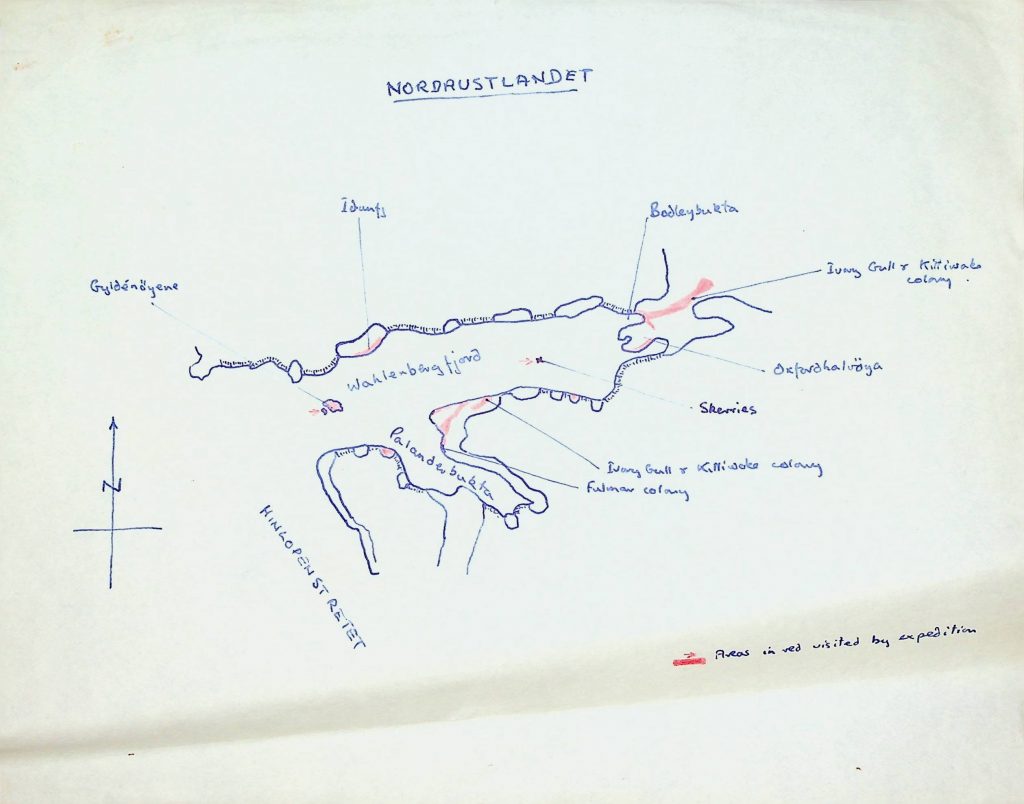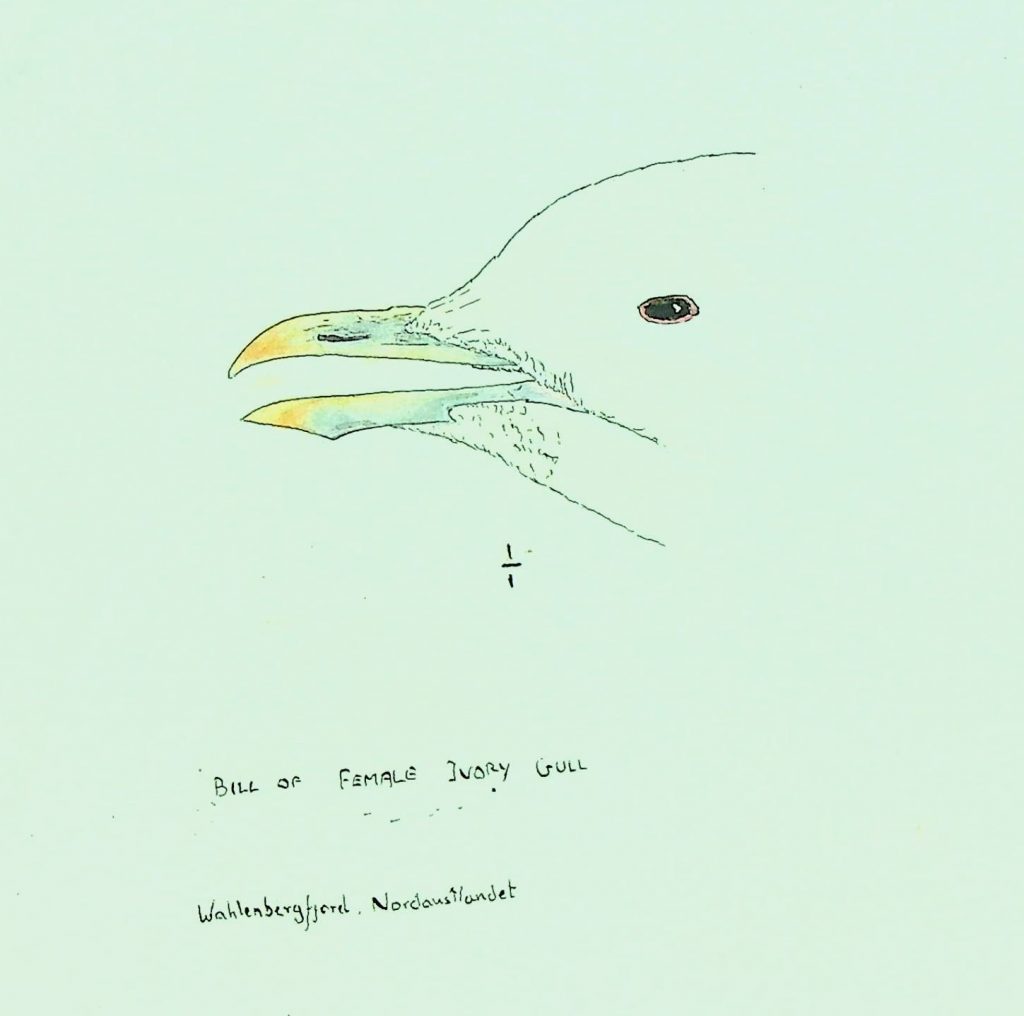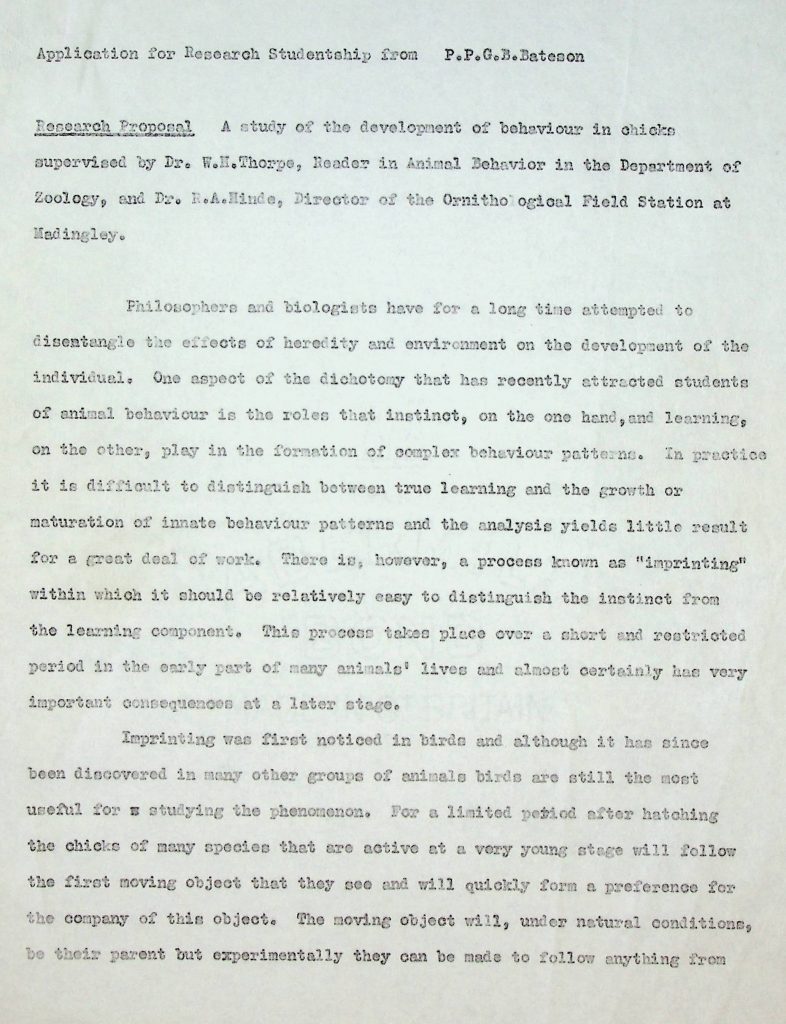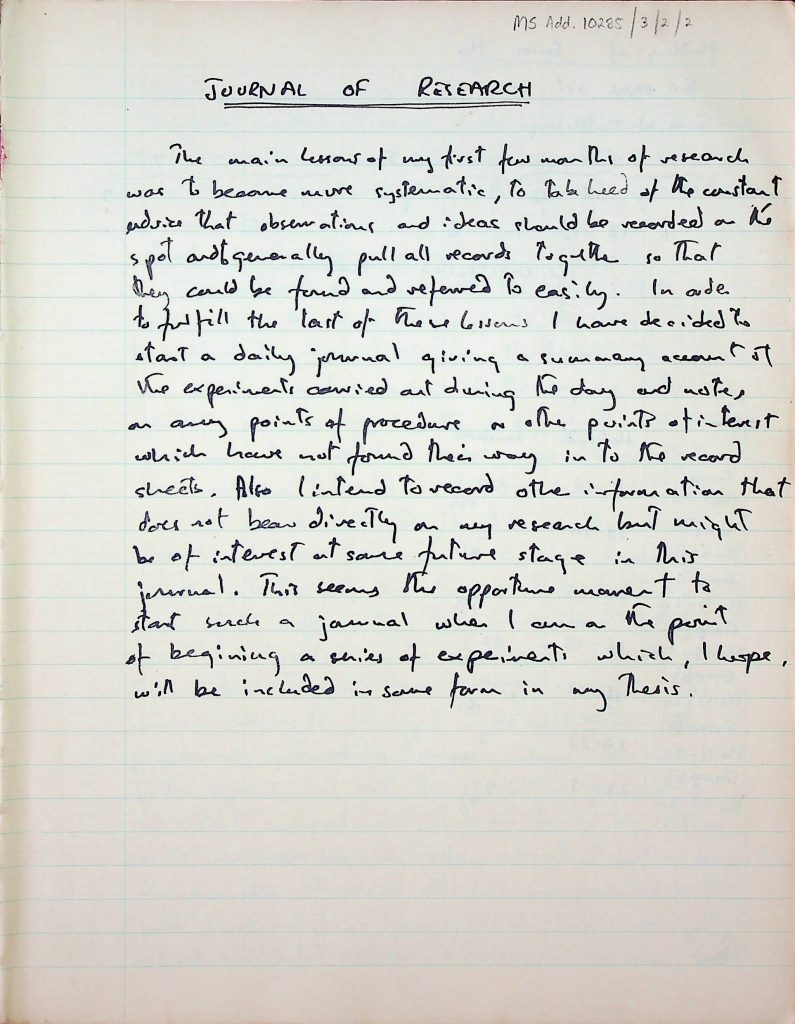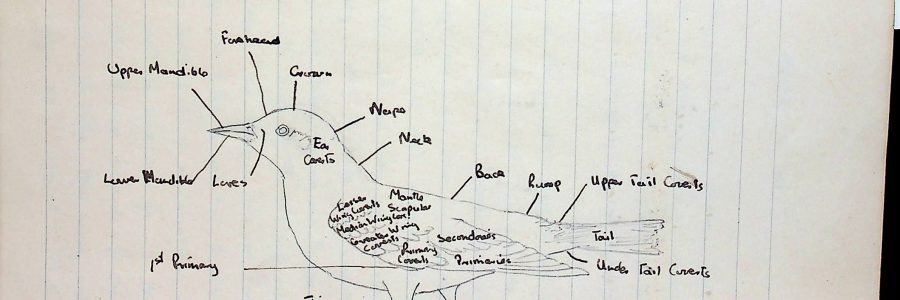
The study of animal behaviour in Cambridge: recently catalogued papers of Sir Patrick Bateson
The papers of the Cambridge ethologist Sir Patrick Bateson (1938-2017), a recent addition to Cambridge University Library’s science archive holdings, have now been catalogued. Bateson’s personal and scientific working papers complement existing collections relating to the study of animal behaviour in Cambridge, notably the papers of the entomologist William Homan Thorpe (1902-1986) and the records of the Sub-Department of Animal Behaviour, both held at Cambridge University Library, and the papers of Robert Hinde (1923-2016), held at St John’s College.
Paul Patrick Gordon Bateson, known throughout his life as Patrick or Pat, grew up in rural Oxfordshire and developed a keen interest from a young age in natural history and ornithology. He was educated at Westminster School and King’s College, Cambridge, where he was placed top first in Part II Zoology. A highlight of his undergraduate years was a student expedition to Spitsbergen (Svalbard) to study rare ivory gulls. The trip was inspired by a meeting with one of the founders of modern ethology, Niko Tinbergen, and resulted in the publication of several papers. Bateson remained in Cambridge to undertake a PhD under the supervision of Robert Hinde at the newly established Sub-Department of Animal Behaviour based in the village of Madingley. Bateson’s research concerned filial imprinting in chicks, exploring the process by which a young animal learns to recognise its parents and members of its own species. The Sub-Department was to become a hub for animal behaviour research, and the starting point for the careers of Tim Clutton-Brock, Dian Fossey, Jane Goodall and Peter Klopfer, among others.
A prestigious Harkness Fellowship followed for Bateson, allowing him to study at Stanford University under the supervision of Karl Pribram on perceptual learning in rhesus monkeys. He returned to King’s College as a research fellow and then lecturer at the Sub-Department, later becoming its director (1976-88) and then Professor of Ethology in 1984. His research extended to all aspects of behavioural development from mate choice and sexual selection (recognition of siblings) to animal play, and the role of behaviour in evolution and animal welfare more generally. He is noted for his work on one of the most contentious issues in animal welfare, hunting with dogs, for a report commissioned by the National Trust in 1995 to examine deer hunting. Bateson was the first scientist to be elected Provost of King’s College (1988-2003). His other major administrative roles included president of the Zoological Society and vice-president and biological secretary of the Royal Society. He was knighted in 2003.
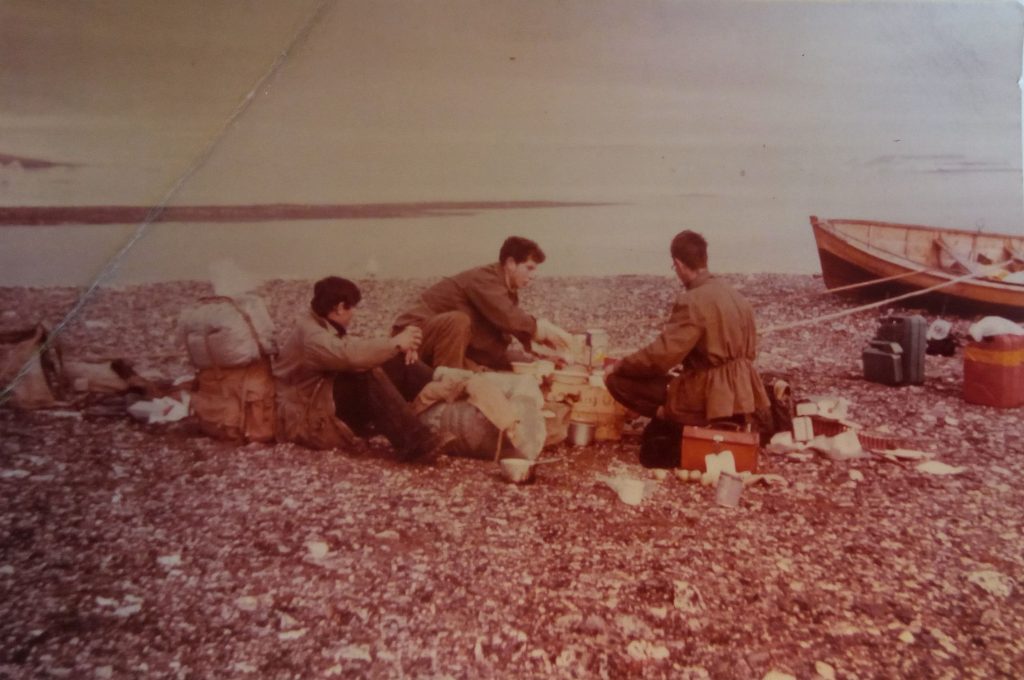
The greater part of Bateson’s archive comprises scientific papers including research notebooks, experiment data, offprints, articles and draft articles, material relating to books and proposed books, and an extensive series of notebooks. These papers cover the full range of Bateson’s research work and interests from his earliest work on ivory gulls in the Arctic circle to imprinting in birds, perceptual learning in monkeys, mate choice in Japanese quail, play in the domestic cat, hunting and red deer in the Quantock Hills, and dog breeding. Of particular interest is a series of research notebooks or journals documenting the early part of Bateson’s research career. There are also a series of lecture notes and a large collection of slides relating to Bateson’s teaching responsibilities in Part II Zoology and Part IB Animal Behaviour.
The personal papers comprise material relating to Bateson’s schooling, including a full run of school reports, and university education as well as material relating to some of his administrative positions, family history and autobiographical reflections. Bateson was especially interested in exploring his family connections to the biologist William Bateson (1861-1926), a Cambridge academic and pioneer in the early history of genetics, and his son, the anthropologist Gregory Bateson (1904-1986). Patrick Bateson’s grandfather was the first cousin of William Bateson. The genealogical papers also cover Bateson’s Norwegian background, particularly the Berg family. Bateson’s maternal grandfather was Paal Berg, chief justice of Norway. Alongside the formal research, teaching and administrative records, the archive provides a full picture of Bateson as a keen traveller, an avid birdwatcher, a prolific note-taker and keeper of journals, a man who kept himself intellectually stimulated and engaged in community causes well into his retirement.
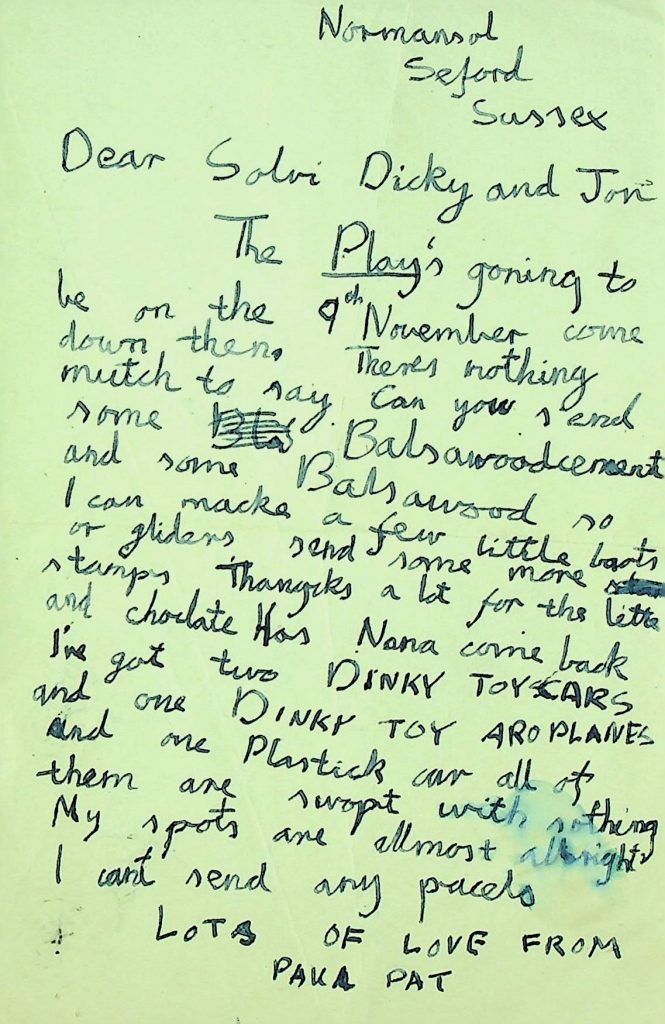
Sir Patrick Bateson died on 1 August 2017. His papers were presented to Cambridge University Library in 2019 and can now be consulted in the Special Collections Reading Room.
We are grateful to Lady Dusha Bateson for the donation of the papers of her late husband, Sir Patrick Bateson. The pioneering research on animal behaviour captured in his archive and notebooks has been catalogued and made available for readers to consult through financial support from Lady Bateson.

